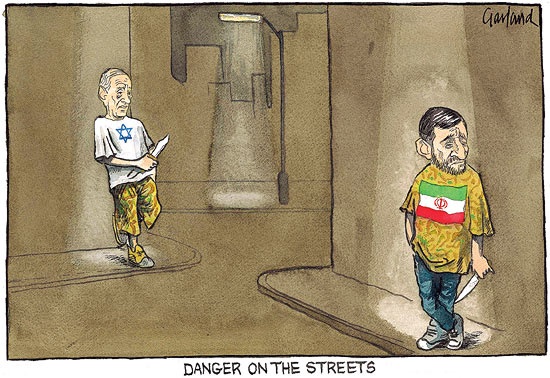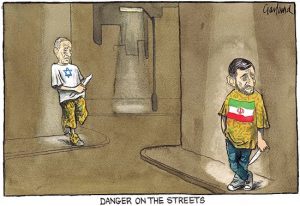The Middle Path
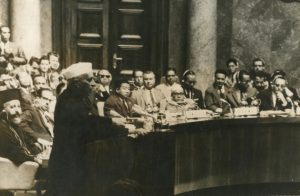 Nehru’s pragmatic diplomacy gave a newly independent India a stature in world affairs much above its economic and military power and guided it deftly in a world being polarised by the Cold War
THE PEOPLE OF INDIA HAVE GOOD reason to be upset about the manner in which the 125th birth anniversary celebrations of Jawaharlal Nehru have begun, marked as they were by petty partisanship and unseemly attempts at settling of scores. Most people would have expected the political leadership to rise above inter-party differences and to unite and celebrate in a mature manner an anniversary of such national importance. Sixty-five per cent of Indians are under 35 years of age and for them it might have been rather puzzling that their elders should find it difficult to behave in a mature manner on an occasion like this.
A good part of the electronic media, with their debates where often more than one person speaks, or rather, the persons involved shout at each other with the anchor not able to enforce minimum courtesy levels, has only enhanced confusion in the minds of the viewers. Nehru, if he were to come back today, would have been appalled at the level of discourtesy displayed in such debates. He had a quick temper, but he was always courteous. Perhaps the debaters and anchors can consider paying a tribute to Nehru by taking a pledge to be courteous to each other from now onwards as their contribution to the ongoing celebration.
(more…)
Nehru’s pragmatic diplomacy gave a newly independent India a stature in world affairs much above its economic and military power and guided it deftly in a world being polarised by the Cold War
THE PEOPLE OF INDIA HAVE GOOD reason to be upset about the manner in which the 125th birth anniversary celebrations of Jawaharlal Nehru have begun, marked as they were by petty partisanship and unseemly attempts at settling of scores. Most people would have expected the political leadership to rise above inter-party differences and to unite and celebrate in a mature manner an anniversary of such national importance. Sixty-five per cent of Indians are under 35 years of age and for them it might have been rather puzzling that their elders should find it difficult to behave in a mature manner on an occasion like this.
A good part of the electronic media, with their debates where often more than one person speaks, or rather, the persons involved shout at each other with the anchor not able to enforce minimum courtesy levels, has only enhanced confusion in the minds of the viewers. Nehru, if he were to come back today, would have been appalled at the level of discourtesy displayed in such debates. He had a quick temper, but he was always courteous. Perhaps the debaters and anchors can consider paying a tribute to Nehru by taking a pledge to be courteous to each other from now onwards as their contribution to the ongoing celebration.
(more…)
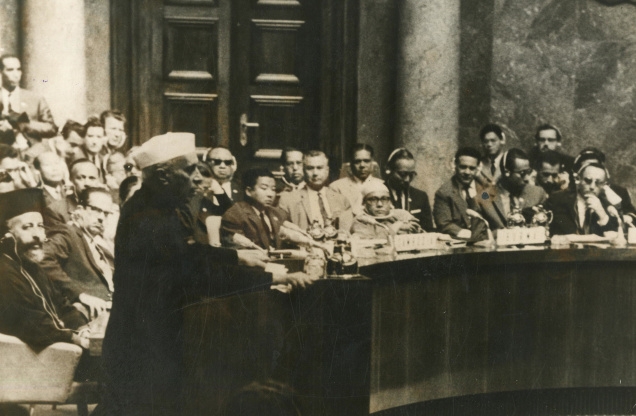
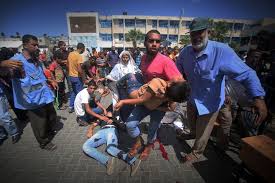
 Humanity heaved a sigh of huge relief when UN and US together announced that both Israel and the Hamas had agreed to a 72-hour cease-fire starting from 8 a.m. local time on Friday Aug 1 and that the negotiations between the two sides mediated by Egypt would begin in Cairo the same day. Alas, the relief was short-lived, only 90 minutes. The Israeli airstrike on Sunday (Aug 3) on a UN-run school only confirms the fragility of hope.
Humanity heaved a sigh of huge relief when UN and US together announced that both Israel and the Hamas had agreed to a 72-hour cease-fire starting from 8 a.m. local time on Friday Aug 1 and that the negotiations between the two sides mediated by Egypt would begin in Cairo the same day. Alas, the relief was short-lived, only 90 minutes. The Israeli airstrike on Sunday (Aug 3) on a UN-run school only confirms the fragility of hope.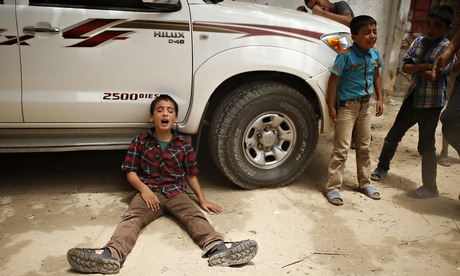
 It is difficult, almost impossible, to envisage an early negotiated ceasefire to put an end to the unconscionable carnage in Gaza. US Secretary of State John Kerry has been working hard, but with his hands tied. President Barack Obama has spoken more than once to Israeli Prime Minister Benjamin Netanyahu on the need for a ceasefire, but always deferentially.
It is difficult, almost impossible, to envisage an early negotiated ceasefire to put an end to the unconscionable carnage in Gaza. US Secretary of State John Kerry has been working hard, but with his hands tied. President Barack Obama has spoken more than once to Israeli Prime Minister Benjamin Netanyahu on the need for a ceasefire, but always deferentially.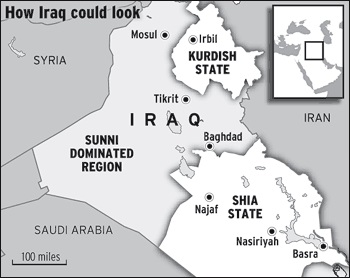
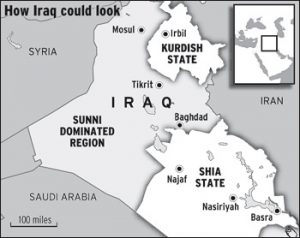 At present (July 2, 2014), it is difficult to see how the ongoing implosion of Iraq can be stalled and reversed. The world started taking note of ISIL and its leader Abu Bakri al-Baghdadi, 43, who has been declared as ‘caliph’ of an ‘Islamic State’ claiming sovereignty over a stretch of territory from Aleppo in north western Syria to Diyala in north eastern Iraq only when Mosul fell on June 20th. But, his forces had taken over Raqqa in Syria March 2013; and Falluja in Iraq in January 2014.
At present (July 2, 2014), it is difficult to see how the ongoing implosion of Iraq can be stalled and reversed. The world started taking note of ISIL and its leader Abu Bakri al-Baghdadi, 43, who has been declared as ‘caliph’ of an ‘Islamic State’ claiming sovereignty over a stretch of territory from Aleppo in north western Syria to Diyala in north eastern Iraq only when Mosul fell on June 20th. But, his forces had taken over Raqqa in Syria March 2013; and Falluja in Iraq in January 2014.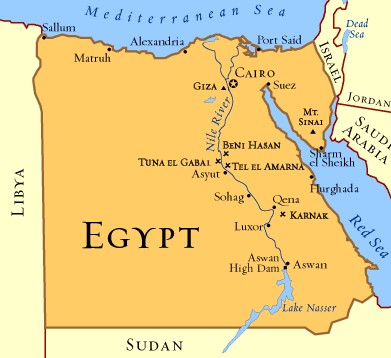
 Now that three years have elapsed since the 2011 Revolution in Egypt, it is pertinent, nay, imperative, to ask the central question: Where is Egypt? Where is it going? On January 25, 2011 Egyptians shed fear of their repressive government that had deprived them of their human rights for decades and gathered in the world famous Tahrir Square to demand that President Hosni Mubarak resign. Mubarak, in office for thirty years, fell eighteen days later. Millions of Egyptians in Tahrir Square and elsewhere saw the exit of Mubarak as signaling the beginning of Egypt’s journey towards democracy. Three years later, it is painfully clear that Egypt has lost its way towards democracy; in fact, it is heading fast in the opposite direction. The police state under Mubarak is being restored; freedom of expression has been drastically abridged; dissent does provoke punishment; political prisoners total up to twenty one thousand; and political demonstrations need prior permission. Egypt is under military rule and a field marshal is soon going to be elected president.
Now that three years have elapsed since the 2011 Revolution in Egypt, it is pertinent, nay, imperative, to ask the central question: Where is Egypt? Where is it going? On January 25, 2011 Egyptians shed fear of their repressive government that had deprived them of their human rights for decades and gathered in the world famous Tahrir Square to demand that President Hosni Mubarak resign. Mubarak, in office for thirty years, fell eighteen days later. Millions of Egyptians in Tahrir Square and elsewhere saw the exit of Mubarak as signaling the beginning of Egypt’s journey towards democracy. Three years later, it is painfully clear that Egypt has lost its way towards democracy; in fact, it is heading fast in the opposite direction. The police state under Mubarak is being restored; freedom of expression has been drastically abridged; dissent does provoke punishment; political prisoners total up to twenty one thousand; and political demonstrations need prior permission. Egypt is under military rule and a field marshal is soon going to be elected president. 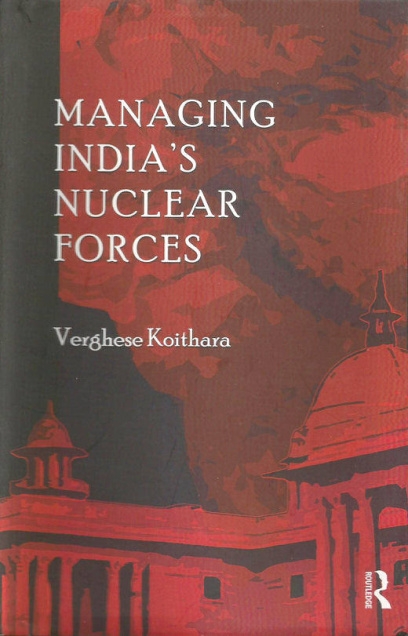

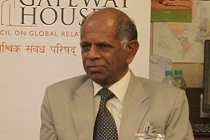
 Understanding the rationale behind India’s diplomatic decisions is essential for policymakers and citizens alike, so as to take better decisions in the future. Gateway House interviews former Ambassador to Italy, K. P. Fabian, to discuss how India's assessment of policy values the spoken word over context.
In his book, 'Diplomacy, Indian Style,' Fabian writes that “according to Greek mythology, Athena came out of the head of Zeus, fully grown and fully armed. There is a popular notion that India’s foreign policy came out of Pandit Jawaharlal Nehru’s head in a similar fashion. That notion is wrong.”
K. P. Fabian, former Indian Ambassador to Italy, shares his insights with Gateway House’s Rajeshwari Krishnamurthy on how the formulation of India’s foreign policies depends on the written word over circumstances.
Understanding the rationale behind India’s diplomatic decisions is essential for policymakers and citizens alike, so as to take better decisions in the future. Gateway House interviews former Ambassador to Italy, K. P. Fabian, to discuss how India's assessment of policy values the spoken word over context.
In his book, 'Diplomacy, Indian Style,' Fabian writes that “according to Greek mythology, Athena came out of the head of Zeus, fully grown and fully armed. There is a popular notion that India’s foreign policy came out of Pandit Jawaharlal Nehru’s head in a similar fashion. That notion is wrong.”
K. P. Fabian, former Indian Ambassador to Italy, shares his insights with Gateway House’s Rajeshwari Krishnamurthy on how the formulation of India’s foreign policies depends on the written word over circumstances.


